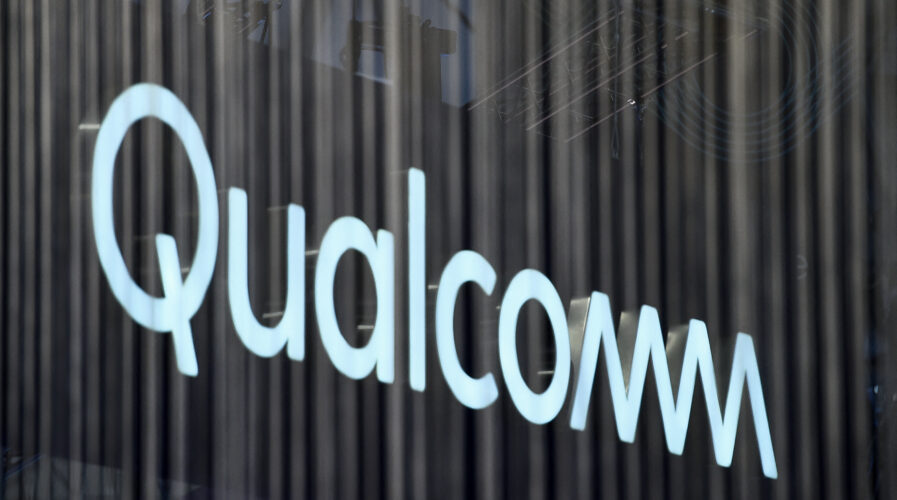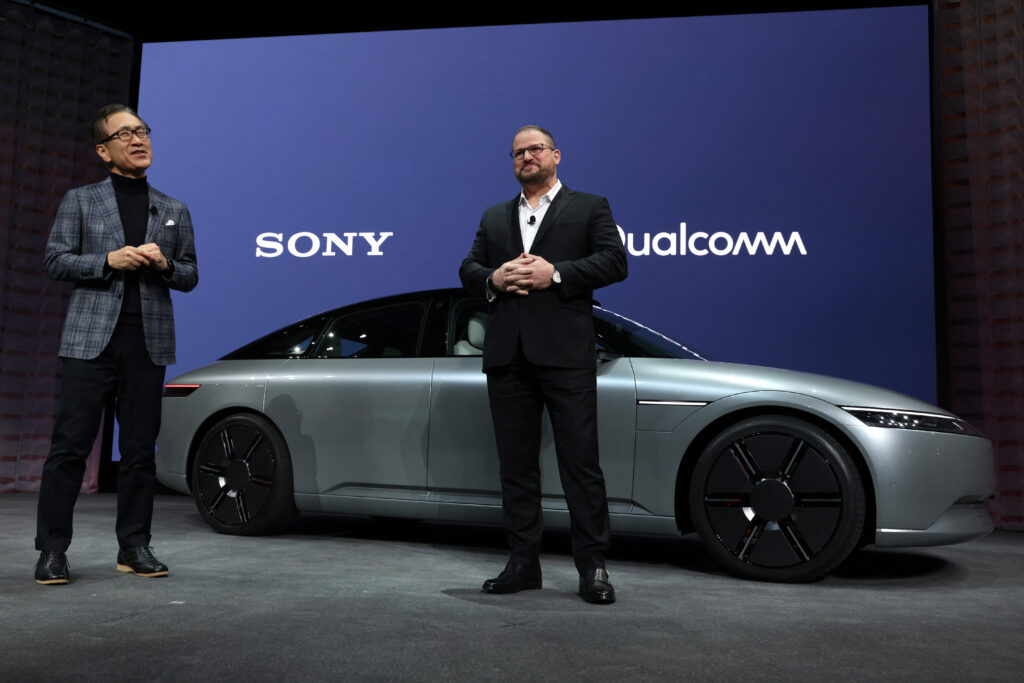
Qualcomm’s Snapdragon Satellite is coming to Android OS soon. (Photo by Josep LAGO / AFP)
CES 2023: Qualcomm’s Snapdragon Satellite is coming to Android OS soon
- During CES 2023, Qualcomm and Iridium announced a partnership to bring satellite-based connectivity to next-generation premium smartphones with Android OS.
- It is also the world’s first satellite-based solution capable of supporting two-way messaging for emergency use or recreation in remote, rural and offshore locations.
We have heard how Apple Inc and Huawei have launched satellite communication at the same time for their latest smartphones. Now, US chipmaker Qualcomm has announced that it is partnering with Iridium, a global satellite communications company, to bring the world’s first satellite-based two-way capable messaging solution to premium smartphones with Android OS.
Starting with smartphones running Qualcomm’s new flagship SoC, Snapdragon 8 Gen 2, the technology would use the 5G Modem-RF Systems on the chipmaker’s hardware, coupled with Iridium’s satellite constellation to deliver emergency messaging. “Emergency messaging on Snapdragon Satellite is planned to be available on next-generation smartphones (running on Android OS), launched in select regions starting in the second half of 2023,” Qualcomm said in a statement.
“Kicking off in premium smartphones later this year, this new addition to our Snapdragon platform strongly positions us to enable satellite communication capabilities and service offerings across multiple device categories,” Qualcomm Technologies’ senior VP and GM for cellular modems and infrastructure, Durga Malladi said.
Beyond smartphones running on Android OS, Qualcomm said Snapdragon Satellite can expand to other devices, including laptops, tablets, vehicles and IoT. “As the Snapdragon Satellite ecosystem grows, OEMs and app developers can differentiate and offer unique branded services taking advantage of satellite connectivity. Snapdragon Satellite is planned to support 5G Non-Terrestrial Networks (NTN), as NTN satellite infrastructure and constellations become available,” the chipmaker said in its statement.
Iridium’s CEO Matt Desch shared that the company’s network is tailored for services like what Qualcomm is offering. “Our advanced LEO satellites cover every part of the globe and support the lower-power, low-latency connections ideal for the satellite-powered services enabled by the industry-leading Snapdragon Satellite. Millions depend on our connections every day, and we look forward to the many millions more connecting through smartphones powered by Snapdragon Satellite,” he added.
Separately, even Garmin said it looks forward to collaborating with support for emergency messaging. “Garmin welcomes the opportunity to expand our proven satellite emergency response services to millions of new smartphone users globally,” Garmin’s outdoor segment VP Brad Trenkle said.
Garmin Response supports thousands of SOS incidents each year and has likely saved many lives in the process. Trenkle said the company looks forward to collaborating with Qualcomm Technologies and Iridium “to help people connect to emergency services no matter where life takes them.”
Besides unveiling Snapdragon Satellite for premium smartphones running on Android OS, Qualcomm also shared that it plans to develop a new connected vehicle platform for automakers with cloud-based software firm Salesforce Inc. The platform for cars with internet access would use Qualcomm’s Snapdragon digital chassis and Salesforce’s cloud services to help automakers personalize user experiences using real-time data, according to the companies.
To top it off, the Snapdragon digital chassis, used by carmakers and their suppliers, can provide assisted and autonomous driving technology, as well as in-car infotainment and cloud connectivity. Prior to this, earlier this week, Qualcomm also unveiled a processor chip for cars called Snapdragon Ride Flex SoC that handles both assisted driving and cockpit functions, including entertainment.

LAS VEGAS, NEVADA – JANUARY 04: Chairman, President and CEO of Sony Group Corporation Kenichiro Yoshida (L) discusses with President and CEO of Qualcomm Cristiano Amon (R) in front of a Afeela concept vehicle by Sony Honda Mobility during a press event at CES 2023 at the Mandalay Bay Convention Center on January 04, 2023 in Las Vegas, Nevada. CES, the world’s largest annual consumer technology trade show, runs from January 5-8 and features about 3,100 exhibitors showing off their latest products and services to more than 100,000 attendees. Alex Wong/Getty Images/AFP (Photo by ALEX WONG / GETTY IMAGES NORTH AMERICA / Getty Images via AFP)
On the same day, Japan’s Sony Group Corp also said its newly unveiled prototype of the “Afeela” electric vehicles will use technology from Qualcomm, including its Snapdragon digital chassis. When it comes to the automotive market, Qualcomm has been steadily building up its business in recent years. Just last September, the company said its automotive business pipeline increased to US$30 billion, up more than US$10 billion since its third-quarter results were announced in late-July.
READ MORE
- 3 Steps to Successfully Automate Copilot for Microsoft 365 Implementation
- Trustworthy AI – the Promise of Enterprise-Friendly Generative Machine Learning with Dell and NVIDIA
- Strategies for Democratizing GenAI
- The criticality of endpoint management in cybersecurity and operations
- Ethical AI: The renewed importance of safeguarding data and customer privacy in Generative AI applications


